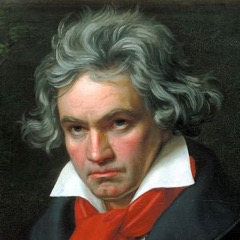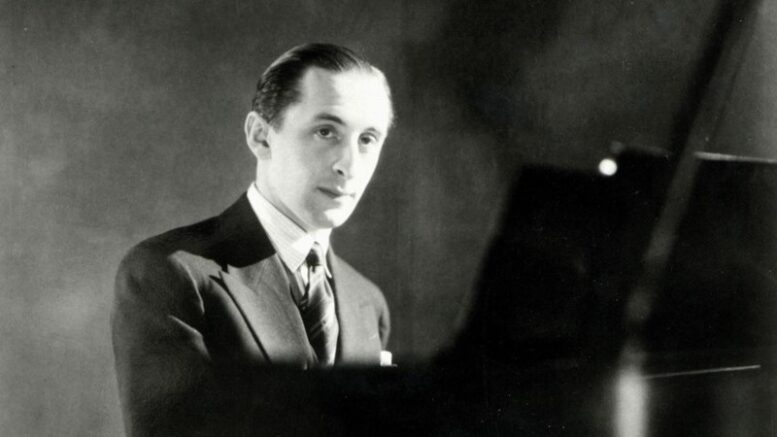Vladimir Horowitz was born in Ukraine in 1903. He was a great musical genius and a child prodigy. As a teenager he knew all of Gotterdammerung, by heart! In St. Petersburg he performed a marathon of 22 concerts with 11 different programs at age 20, causing a sensation.
His early partner was Nathan Milstein who spoke about the economy of motion Horowitz used when he played. His colleague Rudolf Serkin recalled the 1st time he heard Horowitz play.
“I nearly fell off my chair, it was so amazing. The white heat of his playing, the fir and passion were incredible, and my hair stood on end. I have never in all my life heard a performance like that and I will never forget it.”
And his colleague Artur Rubinstein remembered:
“I shall never forget it. There was much more than sheer brilliance and technique. There was an easy elegance, that magical something which defies description…He brought his own arrangement of the dance from Carmen to a shattering climax which made me jump. We were all flabbergasted by him. When he played his final encore, in a high state of excitement I rushed with the others to see him backstage.”
He made his U.S. debut in 1928 with the NY Philharmonic. Rachmaninoff said: “Until I heard Horowitz I did not realize the possibilities of the piano.”
Horowitz said: “When I was young I spent much time playing operas. I was in love with opera and with singing. I didn’t play Bach. I didn’t play Mozart or Scarlatti at that time. Operas only. When I was 12, 13 I was playing operas of Verdi, Puccini, Tchaikovsky, Wagner. I was collecting records of singers, never of pianists. I was interested in Battistini and Caruso, and on the piano I would try to imitate the singers. That is still true of me today. The most important thing on the keyboard is color and singing. I would much rather go to the opera than to piano recitals. At piano recitals I was bored. I wanted to sing at the piano and I listened to those bel canto singers from morning to night. This was a major influence on everything. I never met Battistini but I got every record of his I could find. He was the greatest of the bel canto baritones and very free in his style. He was always sliding from one note to another. I have never heard a singer with such a portamento. I loved it. I try to do it on the piano. You can do it with the pedals. I do it all the time.”
His romantic interest in other men was common knowledge among his friends. However in 1933 he married Arturo Toscanini’s daughter, Wanda. Toscanini was at that time THE most famous musician in the world. In those days the pressure to get married was tremendous. He needed someone to take care of him. And she was very much in love with him. Rubinstein told Horowitz’s biographer Glenn Plaskin, that “everyone knew and accepted him as a homosexual and everyone was therefore astonished when he married Wanda Toscanini.”
Horowitz was the highest paid pianist in the world! He said: “The public who knows nothing of what is required, knows nothing of the hell of the work required. The tears. I’ve torn out many pieces of hair when I was young. There is almost always a gap, sometimes a big gap between the intention and the realization of what you are trying to achieve. It is that gap which is so painful. The critic criticizing the concert doesn’t know that you had worked forever building up a crescendo and that you didn’t succeed in making it come out. Each time you go out on stage you have to outdo yourself. You have to do better. It’s my character. I cannot change myself.”
Horowitz had a very difficult life. One of his brothers died in the Russian revolution; another brother hanged himself. his daughter died of an apparent suicide. His father died in a Russian concentration camp and his mother died of neglected appendicitis. In 1936 Horowitz became convinced that he should have HIS appendix removed. and even though every doctor he consulted told him not to have his removed because there was nothing wrong with his appendix…he had it removed. After the operation he then contracted phlebitis.
He was always incredibly nervous before a performance, always bothered by cramps, a nervous stomach and chronic diarrhea.
1936 until 1939 marked the first of four periods of his life that he refused to perform in public. He later admitted that he had suffered a nervous breakdown, and it was actually Rachmaninoff who gently encouraged him on a daily basis.
It was a very stormy marriage. His valet recalled that if he had a problem with his manager, an experience with a bad piano, a bad concert hall, or a bad review: “He would yell and scream and take it all out on Wanda. She would gently pacify him. She tried to make his life as comfortable as possible, and was an incredible caretaker. They were married for 56 years. The conflict between his sexual orientation and his marriage was an enormous stress. At one point he even saw a psychiatrist who was trying to change his sexual orientation. His valet reported: I would be with him backstage just before the concert. He was always extremely tense and perspiring. I tried in every way I know to relax and comfort him but he was like a man about to jump into the rapids. He would grit his teeth as he went onto the stage.”
Horowitz said: “I was exhausted and felt like my heart was going to burst. My stomach was tight and it felt like it was coming up into my mouth. The tension was unbelievable and I actually felt I might drop dead before I finished.”
In 1949 he began living in hotels, away from his wife. That is until 1953, when he suffered a complete collapse. His valet reported that when he went to visit him he was just like a vegetable, totally incoherent, just blabbering away, speaking nonsense.
The second absence from the stage lasted 12 yrs from 1953 until 1965, when he made a historic comeback at Carnegie Hall. People waited online throughout the night to buy tickets. The concert was sold out within 2 hours.
Beginning in the 1960’s and again in the seventies he was treated for depression with electro shock therapy at Columbia Presbyterian Hospital. In 1969 he stopped playing in public for the third time. He was often tired and depressed. This lasted 5 yrs until 1974. By then when he traveled on tour he would take along his valet, his manager, his wife, sometimes her sister, his piano tuner, the truck driver for his piano, his cook, a water purifier, blackout curtains, and it was stipulated in his contracts that fresh Dover sole had to be flown in to each city he performed in.
He said to his manager: “Playing the piano is the easiest thing in the world, it is all the things around playing the piano that drive me crazy.
I said to myself, my God! I can earn big enough money with recordings, why should I perform? I don’t have stage fright but nervous anticipation, yes. I want to give the best I can. I’m only nervous to play the conception I have in my head. I am nervous to know if it will come out from me or not. The tragedy of the performer is to have to be at your best at a certain day and time. What a horrible fate! Your best might have been two days before or after. Maybe I will have a cramp. I’m only a human being. The problem is that at exactly four o’clock on Sunday I have to be on top, and if at that moment I am not… I don’t have the right to play. That’s what is difficult, the timing of things.”
He had a very sophisticated sensitivity to the acoustics of concert halls. He studied the acoustical properties of each hall before a concert. He knew every crack in the wall. He spent hours finding the optimum position for the placement of the piano on the stage of each hall. if the piano was moved a few inches his acoustical equilibrium could be fatally disturbed. He said: “I have my integrity; I won’t play in a bad hall for a million dollars.”
Horowitz liked to go for a walk every day: 30-40 blocks. If it rained he wouldn’t take the walk, which meant he couldn’t get his exercise. Also if it was humid, the action of his piano would be affected. That meant he couldn’t practice. And these things would throw him into a depression.
Horowitz was enormously self critical. “Sometimes I hear records that I made around 1930, 1940 and I hardly like one note that I play. I am very critical about myself.I listened to the radio and there was some pianist. It was the Liszt B minor Ballade. I listened and said to Wanda, it is horrible. Tempi too slow and tempi too fast. I said it’s probably somebody good and I don’t like it. It turned out to be Vladimir Horowitz. I hated this performance. It was horrible. I would not play one note like that today.”
A fourth absence from the stage was between 1983-85. His biographer Glenn Plaskin said: “24 years total away from public concerts created a mystique. He took advantage of it very cleverly and received tremendous attention in the press.”
In 1986 Horowitz returned for the first time to the former Soviet Union, for which the Presidential Medal of Freedom was bestowed upon him by Ronald Reagan. He said: “You see, the world is full of prejudice and hatred. In a way I work to fill that gap a little. I feel that if I can create beauty and emotion and sometimes a little perfection, then I am helping to close up the terrible gap where ignorance lives.”
When asked why he was going to Russia, he responded: “To make peace between countries so that people won’t kill each other.”
After hearing Horowitz play his 3rd Piano Concerto, Rachmaninoff said: “This is the way I have always dreamed that my concerto should be played, but I never expected to hear it that way on earth.”

